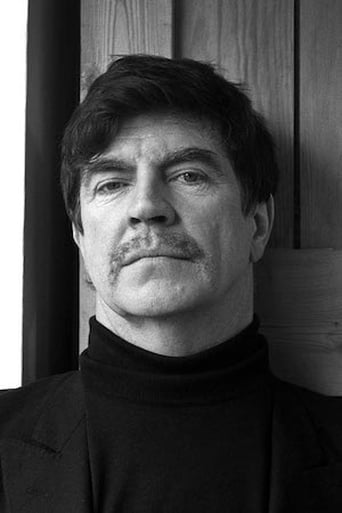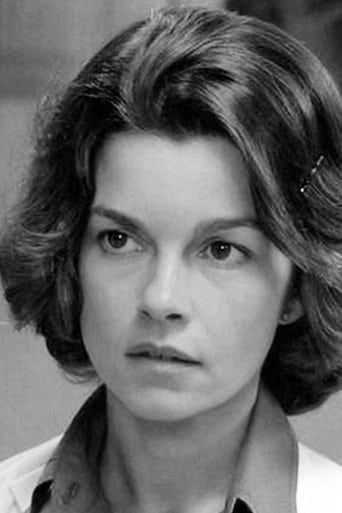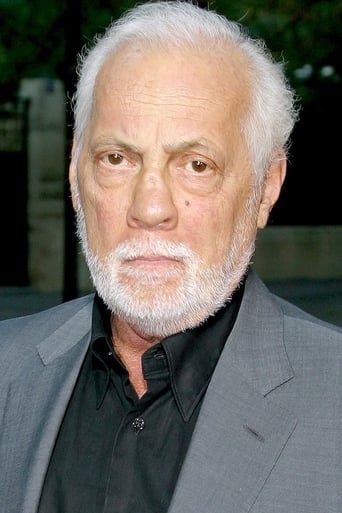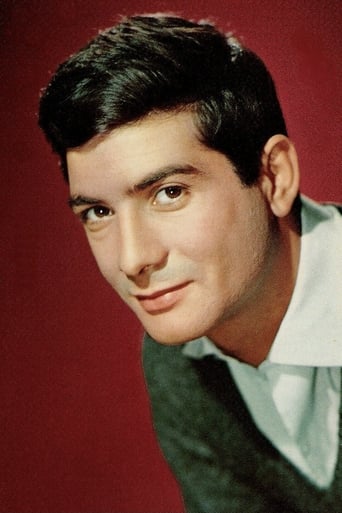Maidexpl
Entertaining from beginning to end, it maintains the spirit of the franchise while establishing it's own seal with a fun cast
WillSushyMedia
This movie was so-so. It had it's moments, but wasn't the greatest.
Tymon Sutton
The acting is good, and the firecracker script has some excellent ideas.
Zlatica
One of the worst ways to make a cult movie is to set out to make a cult movie.
dbdumonteil
"Le Roi De Coeur" belongs to a handful of French movies which are much more known and praised abroad (another example comes to mind:"Cybèle Ou Les Dimanches De Ville D'Avray").In France the audience snubbed it and the critics panned it;De Broca was famous for his entertaining (not meant pejoratively)works ,such movies as "Cartouche" "L'Homme De Rio" "Les Tribulations D'Un "Chinois" En Chine" were huge blockbusters and the people were not ready for "something different"..When he tried something different,nobody understood and the director felt compelled to return to more "accessible" stories ("Le Diable Par La queue" etc);that's why" Le Roi De Coeur" has remained unique ,very original;in the past of the French cinema,to my knowledge ,only one movie mixed the war and an insane asylum (Raymond Bernard's "Un Ami Viendra Ce Soir");Bernard's movie had good potential (who are the loonies?) which he lost in a trite patriotic finale.Broca goes all the way:in a world gone mad, the only safe place,where people have remained sensible,is an insane asylum!the last picture -which may have inspired the ending of the much more conventional "rain man" -is revealing;this is one of the most extraordinary demonstration of the absurdity of war .Broca had done what Richard Lester tried to do (but was not able to)in his "how I won the war" :a crazy movie in which madness rules but has its own internal logic ;terrific French cast plus English Alan Bates -who loves birds and thus is a potential pacifist plus Italian Adolfo "Largo" Celi as an English major plus gorgeous Canadian Genevieve Bujold as Coquelicot (=Poppy!).
theowinthrop
I saw this at my college over thirty years ago, and remember it fondly. Made in the late 1960s, it became a hit with American audiences in the grips of our madness called "Vietnam". British soldier Charles Pumpnick (Alan Bates) is ordered in a typical screw-up to go into a French village to defuse a large bomb left by the Germans. It is World War I, and the British are led by Col. MacBibbenbrook (Adolfo Celi) who is actually sending Pumpnick for a second reason: he wants to know if the Germans have actually left the town, so that his soldiers can "reoccupy" it. Given the tedious and murderous stalemate on the Western Front between the Allies and Central Powers in their trenches, any temporary regaining of land is a great victory. The Germans are led by an officer as fully suspicious of the British as MacBibbenbrook is of them. So he decides to test the waters by pulling out most of the troops, leaving a trio to watch for the British turning up. Pumpnick, rather reluctantly, does pop up, and soon discovers that the French citizenry has long since fled the town in the wake of the massive warfare around it. The only people he find seem very eccentric types. They should be - they are the inmates of the local insane asylum, who were abandoned by the doctors and staff. They have now decided to take over their imagined roles in the new reality of the deserted village. Soon Pumpnick realizes this, but he soon finds himself protective of these lunatics. He also finds their gentle insanity has some real substance to it that moves him - much more than the intense insanity of the outside world does.Other writers and artists have tackled the idea of the madmen running the asylum. A good example is Edgar Allen Poe, in his short story, "The System of Dr. Tarr and Professor Feather". But Philippe De Broca's film compares insanity in two forms, and finds the form we normally "punish" by incarceration in asylums to be far kinder than the larger one. None of the madmen and women of the asylum threaten or hurt Pumpnick (a point which shows this is a fantasy, as in real life they would have some dangerous types). The ones who we reward with rank and power are far more willing to send the Pumpnicks of the world into dangerous (if not deadly) situations.The conclusion of the film is too well known for me to discuss. I will only say that when the more dangerous outside lunatics get rid of each other's threat, Pumpnick opts to stay on with his new friends. They will welcome him.Aside from this I like to comment on more point. De Broca had a bit part where he shows that things on the outside can only get worse, when he shows up as Adolf Hitler briefly, delivering the German officer a message. Perhaps I should say the intensely bad situation will get even more intensely bad in twenty years time.
pres10514
In 1967, my young husband and I blundered on this movie as part of a double feature. We were waiting to see the beginning of another movie that we had watched from the middle, having arrived late, as was customary at that time. As this masterpiece, unheralded to us, unfolded, we turned to each other in wonder. Later, we learned of its highly deserved cult status. I was unaware that the 60's were to be a golden age of cinema; one needs distance to appreciate this. Le Roi de Coeur is elegant, beautiful, visually charming, humorous, and finely acted. And in the service of a serious theme, as well. Most highly recommended, and far above current movie productions of any type.
writers_reign
The lunatic asylum as a metaphor is not of course original and has been employed in films as diverse as The Balcony and Folle Embellie but this one has an added element of charm that works heavily in its favour. Initially it's hard to accept Adolfo Celli as a Scottish officer or indeed Alan Bates as a Scottish soldier much less an ornithologist but as soon as the French actors are rolled out (almost literally) it picks up and is off and running. Micheline Presle is particularly striking and at one level the film is worthy of her daughter, Tonie Marshall, a more than accomplished director, but all the inmates have their moments - indeed De Broca seems to have deliberately provided each one with his or her moment in the sun so that the film is at its strongest as an ensemble piece although Genvieve Bujold's chocolate box beauty tends to catch the eye whenever she appears. The plot has been dealt with elsewhere but just for the record it's kick-started by one of those World War One blunders that were obviously commonplace and seem funny now but probably less so at the time especially to those on the receiving end; ornithologist Bates is mistaken by his Colonel for an explosives expert and ordered to diffuse the bombs thought to have been planted by the Germans prior to evacuating the town (along with the residents). Nothing Bates can say can deter the Colonel from sending an unqualified man to do a job for which he lacks both training and expertise and the upshot is that Bates inadvertently releases the inmates of the local asylum who then with the logic of a dream assume the clothes and roles of the townspeople. There's a fine sense of colour in the costumes, possibly inspired by Minelli but essentially it achieves its effects by a charm offensive. Highly recommended.





